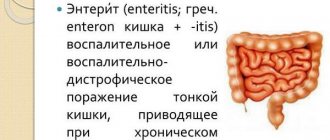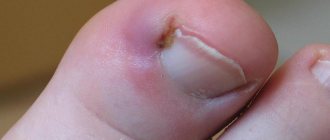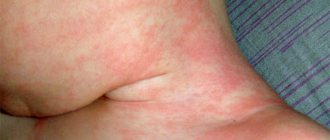Causes of changes in stool color
Each person's digestive processes are individual. Throughout life, they constantly change under the influence of a large number of different factors. The reasons for the atypical color of feces are different in adults and children.
Change in color of baby's stool
In infants, the digestive organs are still immature and cannot sufficiently perform all their functions. And that is why the baby often has a gray coloration of stool. Nutrition has a significant impact on their condition and appearance.
If a child is breastfed, then his digestive system gradually adapts to external conditions. The gray color of feces is observed when the child begins to be fed with artificial nutritional formulas.
In healthy children, adaptation of the digestive system is completed within several months after the transition to artificial feeding and the introduction of complementary foods. By the age of one year, the development of the gastrointestinal tract in babies is completed.
Change in stool color in adults
Normally, men and women have brown stool. Discoloration of stool indicates disturbances in the flow of bile into the duodenum.
The following reasons cause gray stool:
- inflammation of the gall bladder;
- blockage or dyskinesia of the biliary tract;
- liver inflammation;
- diseases of the rectum;
- intestinal infection;
- inflammation of the pancreas;
- Crohn's disease;
- helminthic infestation;
- tumors in the liver, pancreas or gall.
The appearance of gray feces with a pungent odor indicates the development of severe inflammatory pathologies in the digestive tract. Most often this occurs as a result of pancreatitis or severe putrefactive dyspepsia .
Use of medications
Sometimes gray coloration of stool appears as a result of the fact that a person uses certain medications:
- medicines containing bismuth compounds;
- activated carbon;
- antifungal drugs;
- anti-gout medications;
- antiepileptic drugs;
- Ibuprofen;
- aspirin.
The appearance of dark stool in these cases requires discontinuation of the drug, diagnosis of the patient and the appointment of appropriate treatment.
During pregnancy
The appearance of gray stool during pregnancy may indicate that the pregnant woman eats a lot of fruits and vegetables. If there is no pain and no mucus appears in the stool, then this condition is normal. The problem will disappear if you slightly adjust your diet during pregnancy.
If abdominal pain appears, a change in the nature of bowel movements, or yellowing of the skin, a woman should urgently consult a doctor, because these signs indicate the development of dangerous diseases of the digestive tract.
Therapy of a pathological condition
The method of treating gray loose stools in a child depends on the underlying cause. Also, medications, their dosage regimen and dose, and course duration are selected taking into account the patient’s age and the individual characteristics of his body.
In order to normalize the functioning of the gastrointestinal tract and eliminate the disorder, enzymes, drugs with antibacterial properties, antiviral compounds, probiotics, and sorbents are prescribed. Enterofuril, Smecta, and Acipol are often used in the fight against the disease.
In addition to pharmaceutical drugs, it is permissible to use plant-based products. When a child has loose gray stools in parallel with drug therapy, after consultation with the doctor, a decoction of blueberries and bird cherry can be used. Chamomile infusion and oak bark decoction are also useful - these compositions have fixing properties.
What foods can stain stool?
Some foods can lighten stool, causing it to appear gray.
This phenomenon occurs when consuming large quantities:
- milk and dairy products;
- lard;
- oils;
- confectionery products;
- potatoes;
- rice;
- high-calorie dishes;
- alcoholic drinks.
With an appropriate change in diet, this problem disappears; the color of a person’s stool gradually becomes brown.
Preventive measures
Diarrhea is one of the most unfavorable worries that can completely disrupt a person’s plans. A number of preventive measures will help to avoid its occurrence:
- After coming from the street or public places, you must wash your hands thoroughly with soap. It is recommended to treat your palms with a disinfectant solution.
- Each product must be thoroughly washed before use or preparation, preferably additionally treated with boiling water.
- Every day you should drink a sufficient amount of pure liquid, approximately 30 ml per kilogram of weight.
- You should avoid contact with infected people.
- You should not buy food in dubious stores and visit public places that do not meet sanitary and hygienic standards.
- It is worth paying attention to the expiration date indicated on the product wrapper.
- It is required to regularly clean and ventilate the living space.
- It is not recommended to visit public places during the peak of viral diseases.
Diarrhea is one of the most common worries that almost every person has to face. If it was not possible to avoid its occurrence, then it is worth taking all possible measures to eliminate it. The best result can be achieved by a combination of proper nutrition and competent treatment, which can only be selected by an experienced specialist after a diagnostic examination.
Dark gray feces
A person may develop a dark gray tint. As a rule, it has a very unpleasant putrid odor. This happens with diseases of the digestive tract:
- Dyspepsia is a violation of the secretory function of the gastrointestinal tract and a decrease in the acidity of gastric juice. In sick people, the normal microflora of the mucous membrane of the digestive organs changes dramatically.
- Inflammation of the colon mucosa. This can produce a significant amount of hydrogen sulfide.
- Acute dysbacteriosis. In this case, due to altered bacterial flora, insufficient breakdown and digestion of food occurs. This condition is accompanied by belching, heaviness in the abdomen, and an unpleasant taste in the mouth.
- Inflammatory diseases of the pancreas. Acute pancreatitis is a life-threatening condition and always requires immediate surgical treatment.
Alarm symptoms or when diarrhea is dangerous
If the disorder happened once or twice, and the baby’s general condition did not change, there is no need to worry. It is necessary to sound the alarm if the child’s diarrhea is gray and complicated by the following symptoms:
- severe pain syndrome;
- nausea and frequent vomiting;
- malaise;
- increased irritability;
- increase in temperature;
- apathy, drowsiness;
- loss of appetite;
- losing weight.
Such manifestations signal the presence of a disease that requires appropriate therapy. When a child has gray diarrhea, any delay in treatment or ignoring the manifestations is fraught with critical consequences: functional disorders, dehydration, and death.
When to sound the alarm
The following signs should alert you and force you to consult a doctor as soon as possible, as they indicate disturbances in the functioning of the digestive tract:
- pain in the abdomen in any area, especially after eating;
- yellow skin color;
- increased body temperature;
- nausea;
- vomit;
- change in urine color;
- loss of body weight;
- decreased appetite;
- bloating;
- diarrhea or constipation;
- deterioration of condition.
The appearance of these symptoms along with the presence of gray feces indicates the development of severe digestive pathologies.
If the consistency of stool has changed (they have become solid or, conversely, liquid), this indicates the addition of inflammatory pathologies of the intestines, stomach, liver, and pancreas. These diseases should never be ignored.
Untreated inflammatory pathologies of the gastrointestinal tract can lead to the development of oncological processes.
Why does my child have gray loose stools?
The appearance of such a painful condition as diarrhea in a baby should alert parents, especially if the color of the stool has changed. Gray diarrhea in a child can be provoked by various factors, and it is good if the cause of the illness is overeating or another harmless factor.
A disorder caused by a disease or functional failure requires medical intervention and comprehensive treatment. What are the possible causes of loose stools and how to cure your baby?
Diagnostics
If gray stool appears, you should consult a physician, gastroenterologist or pediatrician.
The doctor will prescribe the following diagnostic tests:
- Bacteriological analysis of stool. It will help determine the presence of helminthiasis, occult blood and dysbacteriosis.
- Microscopic examination helps to identify the presence of pathogens of infectious pathologies.
- Tests for worm eggs.
- Biochemical analysis makes it possible to evaluate the intestinal microflora and establish its pathologies.
- Endoscopic examination. It will help detect diseases of the esophagus and stomach.
- Colonoscopy. This examination will make it possible to diagnose pathologies of the rectum and large intestine.
Diarrhea from infections, foods and medications
If feeding standards are observed, the causes of diarrhea in children are pathogens of intestinal infections, acute respiratory viral infections, food intolerance, and sensitivity to medications.
Contracting an infection
Kids actively play, explore the world around them, taste and touch everything. And this is fraught with infection. Dirty vegetables and fruits, playing with pets, direct contact with an infected person, and drinking untreated water are the causes of intestinal infection.
Eating disorder
The causes of this type of diarrhea, otherwise called dyspepsia, are overeating sweet, fatty foods, fruits and causes nausea, vomiting, bloating, and greenish loose stools. Often this is also associated with moving to another place of residence, when the diet, diet, and quality of water and food change. In addition, vomiting and rash indicate the presence of an enterovirus infection of the intestine. These symptoms are also characteristic of chickenpox.
Dysbacteriosis
Often the causes of diarrhea are associated with disturbances in the microflora of the gastrointestinal tract, accompanied by loose stools, bloating, gas formation with an unpleasant odor, suspicious color and an abundance of undigested food in the child’s stool.
Food intolerance
This type of diarrhea can be caused by lactase deficiency and gluten intolerance to cereal proteins in children less than 1 year old. To digest breast milk, a special enzyme is required - lactase, which is necessary to break down milk sugar - lactose. If the body of a child under 1 year of age does not produce enough of this enzyme, mother’s milk is not digested, and symptoms of diarrhea appear with profuse foamy diarrhea with a sour odor and rumbling stomach.
The causes of lactase deficiency are related to genetic inheritance, which disappear over time. Diagnosis requires stool samples to be tested for glucose. Gluten intolerance to grain proteins is caused by an allergy called celiac disease. It manifests itself during the transition from breastfeeding to cereals and bread. The cause of the disease is a genetic predisposition to gluten allergies.
Treatment
If a deviation in stool color is detected, treatment for the underlying disease is prescribed. For pancreatitis, a diet is indicated. In severe cases, surgery is required.
Treatment of hepatitis is aimed at eliminating etiological factors. The patient is strictly prohibited from drinking alcohol. Hepatoprotectors are prescribed.
In other cases, correction of nutrition and lifestyle is indicated. Eliminating fast food, fried and smoked foods helps normalize a person’s condition.
The diet should consist of vitamin dishes that are easily digestible and do not lead to irritation of the gastrointestinal mucosa.
Gray coloration in stool can sometimes appear for physiological reasons. In this case, there is no reason to panic. The color of feces will become normal after the diet is brought back to normal. With the development of pathological conditions of the digestive tract, effective treatment is necessary as prescribed by a doctor.
How to prevent diarrhea
Gray diarrhea in a child is an unpleasant pathology that, if not treated correctly, can lead to serious complications. It is easier to prevent a disease than to treat it. To do this, you need to follow a number of the following recommendations:
- monitor the baby’s health;
- feed only healthy, properly thermally processed products;
- undergo a preventive examination by a doctor every 6 months;
- treat diseases in a timely manner;
- Explain to your child the importance of following personal hygiene rules.
Source











